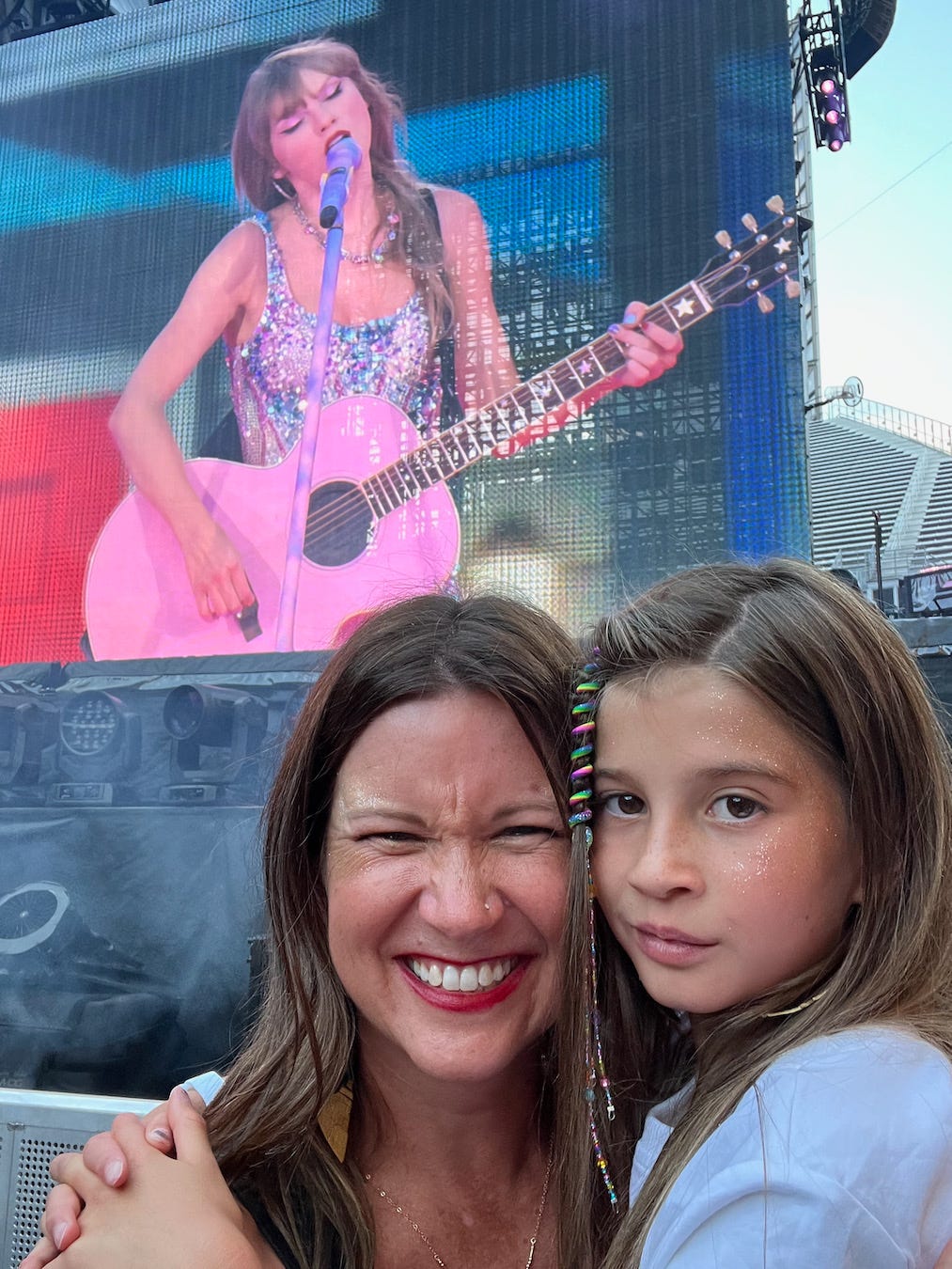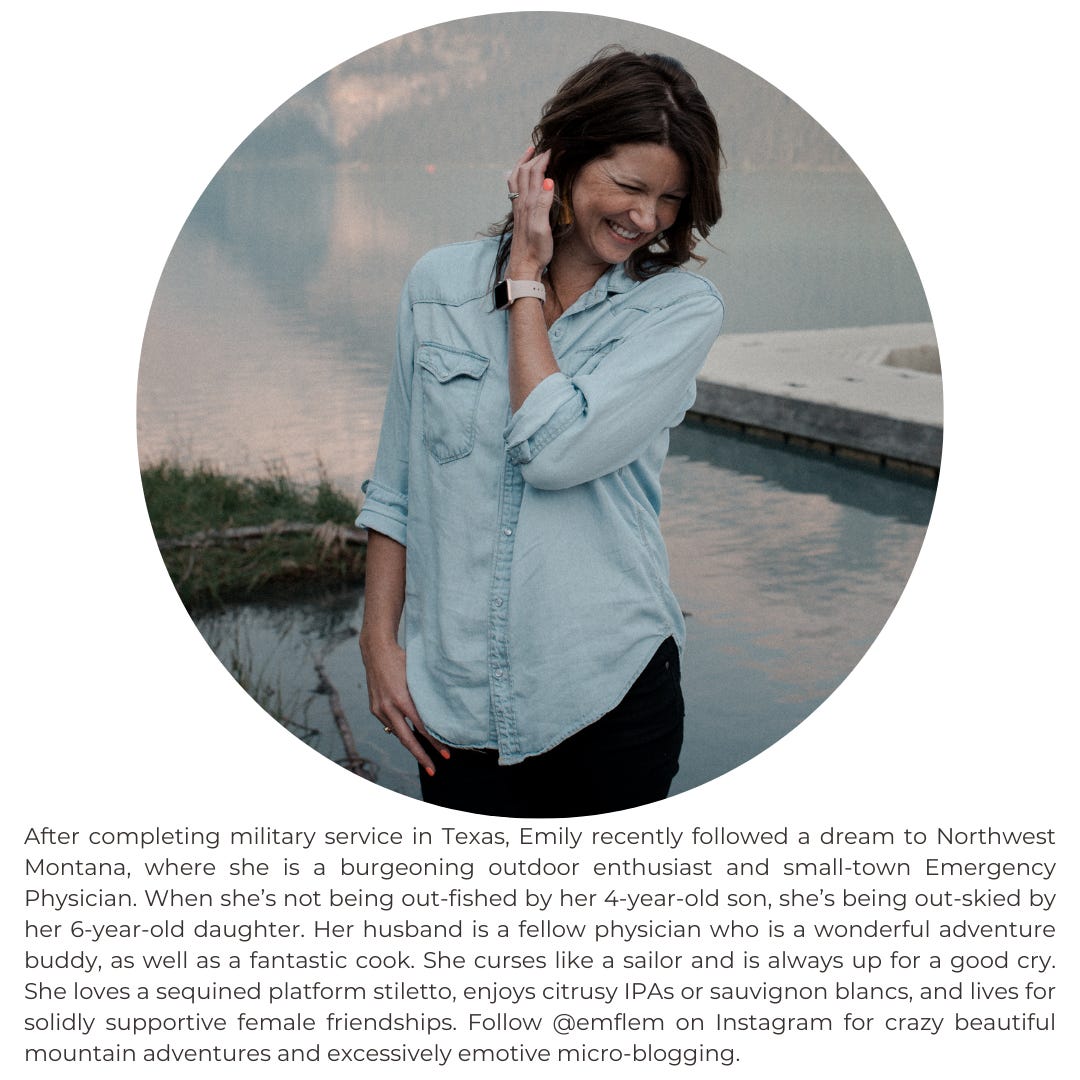Welcome! This weekly email newsletter is a place where women spanning all ages share their sense of identity and their awareness of our world through personal narrative. Stories shared here come from writers across many generations, cultures, locations, and ethnicities.
Happy end of August!
We’re back this week with a thoughtful piece from our regular contributor, Emily Fleming. In the coming weeks, we will switch our format to every other week, so we look forward to seeing you again in September! — Emily S.
“Intolerance is a failure of curiosity.”
—Christina Lauren*
A few weeks ago, I was asked to participate in a video teleconference press call about reproductive rights, in the week leading up to the anniversary of the Supreme Court Dodd decision. The purpose of this press call was to urge my state’s legislature to continue to protect reproductive freedom by blocking the many recent legislative attempts at infringement upon the rights currently protected by our state’s constitution. My words were quoted in a number of media outlets throughout my state, including a radio spot.
I spoke from my experience as an emergency physician and a mother, in support of keeping decisions about reproductive health between the patient and their physician. I am pro-choice. But I wasn’t always.
In high school, I wrote an essay arguing the pro-life position. I no longer have access to the text, but I remember essentially arguing vehemently that there was no situation that would justify performing an abortion, at any stage of pregnancy. I was raised in a religious, politically conservative household. This was not only what had been taught to me in my home and at church, but it was a belief I firmly held all the way through college.
Since then, my work has led me to encounter countless numbers of patients who find themselves in impossible positions surrounding their reproductive health. Nonviable pregnancies that are actively threatening the life of the mother. Desperately desired pregnancies with congenital anomalies and malformations that are incompatible with life. Preterm labor in pre-viable fetuses. Ectopic pregnancies located in a patient’s single remaining tube and ovary. Rape victims. Children.

My views on abortion have changed. Abortion is a medical procedure with a wide variety of indications. Patients and their physicians should be the only ones participating in a discussion about whether or not to have one, without interference from any other entity. Full stop. I understand the opposing view. I used to share it. I just don’t agree with it anymore.
I know this subject is controversial. In fact, I remember telling friends, after I participated in that press call, that I hoped I didn’t get any death threats. I was only half joking, and thankfully, I didn’t. In fact, I had several strangers and a few acquaintances approach me and thank me for what I’d said. I was pleasantly surprised, quite frankly; I had fully expected to be roasted on a spit for expressing my opinion.
We are so quick to vilify or “cancel” those who think differently than we do. I recently listened to “The Witch Trials of J.K. Rowling”, a podcast released earlier this year that addresses this topic as it interviews J.K. Rowling about her viral tweets in 2020 regarding the transgender community. The podcast discusses how the advent of the internet era has led to the prevalence of cancel culture and doxxing, and how this contributed to Rowling’s experience. The details of Rowling’s issue are not germane to our discussion today, but it’s an interesting thought experiment, to trace the origins of our current societal polarity to the dawning of the internet.
Somewhere along the way, we seem to have lost the ability to respectfully disagree with one another. Although our nation is a beautiful amalgamation of many different cultures, we seem to be increasingly intolerant of others who view things differently than we do.
Certainly to merely describe this as a “disagreement” is to minimize it entirely. Many of these issues we disagree upon are topics of sweeping legislation. As a nation, we see many things differently, and our differing views on these topics have massive effects on people’s ability to live, work, pursue education, and access healthcare. These are not small things.
In reality, these are more than just conversations or comments. Laws are passed on these topics, and those laws dictate action. One of the other issues addressed by the aforementioned podcast is the ways in which the transgender community felt attacked by Rowling’s expression of her opinion. And this is the crux of the issue, isn’t it? It is hard enough to disagree about a topic. It gets personal when that disagreement leads to one party feeling unvalidated, or when the disagreement leads to legislation that bars them from accessing services they need to live.
I don’t have any ground-breaking strategies for how to live more harmoniously with our fellow man. However, I’m currently highly preoccupied with finding a way to disagree more respectfully. Some days it feels impossible, like the stakes are just too high. But I liked what J.K. Rowling said (ironically, even as she seemed to express surety about her position): “We should mistrust ourselves most when we are certain.”
Engaging in open and honest conversations with people who view life differently than we do can do wonders for broadening our view of the world. Perhaps we can move forward a little when we let go of the need to be right and focus more on meeting the need to be heard.
*Did I take this quote from a contemporary romance novel? Yes. Yes, I did.
Emily’s Five Favorite Things:
The “Witch Trials” podcast ads are all about Honestly, a podcast that seeks to foster open discussion on challenging topics. I love this episode on parenting, and this episode on free speech. This one, titled “A Better Way to Disagree”, is up next.
I feel like I have a lot to learn about the experience of the transgender person. I believe I have recommended This is How It Always Is to at least a dozen friends and coworkers. Though it is fiction, I love how beautifully the family’s practical challenges are rendered. And last year’s Mad Honey accomplishes a similar feat. Both are very thought-provoking while being entertaining.
The press call mentioned above was orchestrated by an organization called the Committee to Protect Healthcare. I was honored to partner with them, and find their mission to be incredibly important. They provide a platform and a framework for busy physicians with families (like me) to participate in advocacy efforts.
On a lighter note, I have found this blush to be a game-changer this summer. It’s just the right shade of pink.
This song, by none other than Bone Thugs-N-Harmony, does an excellent job of making me feel much younger and more hip than my 39 years, while also remixing one of my favorite Fleetwood Mac songs. Don’t knock it till you try it.
With gratitude,
Emily Fleming
P.S. More letters from Emily, including Nuanced Motherhood, Extricating the Self from Work and Letting it Be.







“It is hard enough to disagree about a topic. It gets personal when ... the disagreement leads to legislation that bars them from accessing services they need to live.” <<== This all day.
In my attempt to have these conversations more respectfully, I am trying to be MORE CURIOUS and LESS “JUDGEY”. Not my original idea, it’s effective to hear where people are coming from first and allows for more open discussion after.
The Witch Trials podcast was so well done. It went farther than the issue of discussion and cut right to the cultural problems of vehement dissent. So good. I also appreciate that you’ve expressed something important here: the freedom to change one’s mind. Occasionally, when I’m teaching students argumentative writing strategies, I have them write from both perspectives. The goal is understanding how both sides can build an argument, this building empathy and connection, despite disagreement. You’ve done that well in this piece. Thank you!